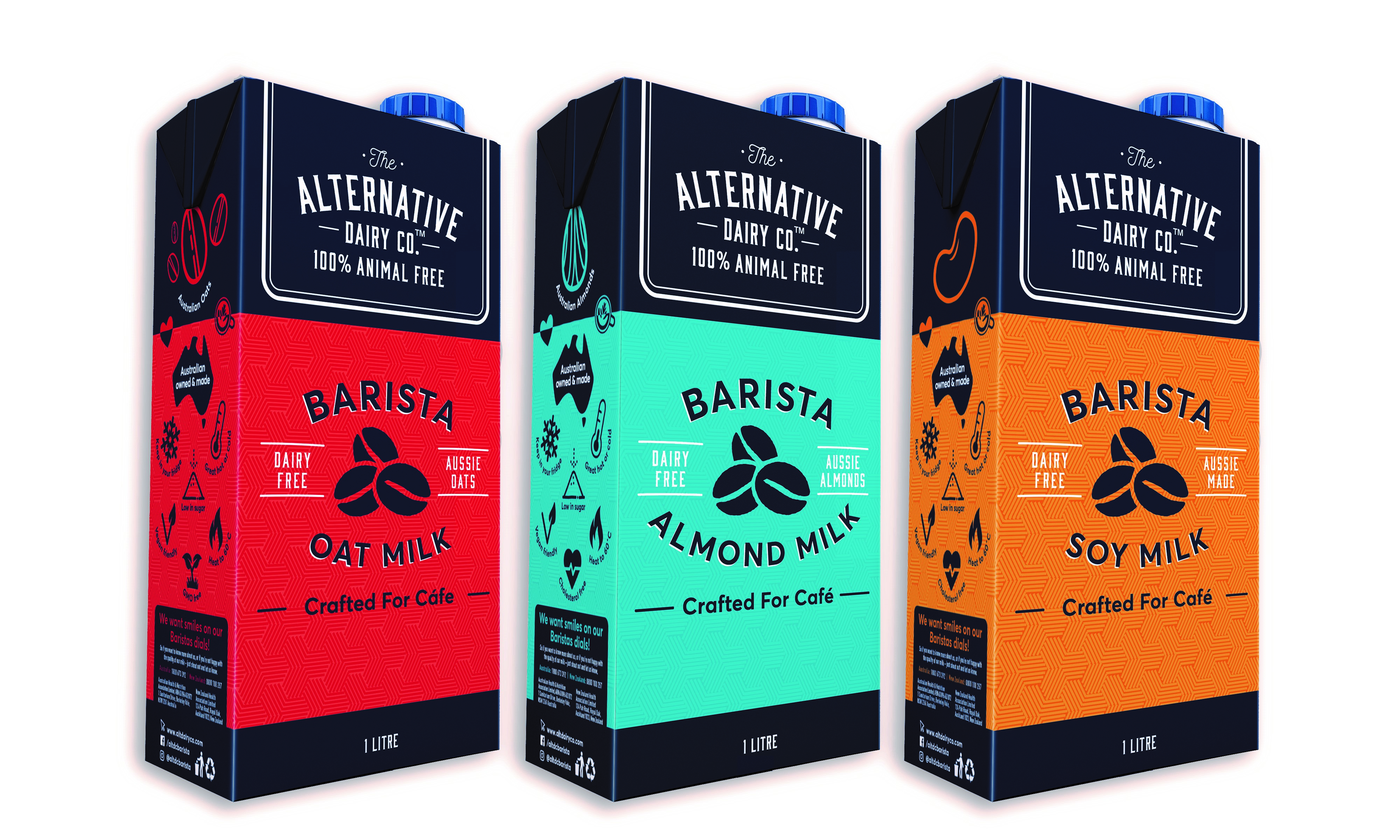The Future Food Systems Cooperative Research Centre (CRC) has welcomed Australia’s longest-established plant-based health-food manufacturer, Sanitarium Health Food Company™, into its consortium.
Australia’s iconic health-food brand is set to work with UNSW food-technology specialists in CRC projects to improve the functional properties of innovative plant-based protein products, starting with its Barista dairy-free milk range.
The plant-based milks, which come in almond, soy and, most recently, oat varieties, are designed for and marketed to Australia’s food-service industry under Sanitarium licensee The Alternative Dairy Co.™.
“Sanitarium’s new Barista plant-based milks are in high demand in the café sector in Australia and New Zealand,” said Paul Ginn, General Manager – Development & Innovation at Sanitarium.
“With the team at Future Food Systems we are investing in the development of a method to quantitatively measure the ‘stretchiness’ of the foam produced by our Barista milks to continue offering the best experience possible, and provide a method to assess the performance of different plant-based milks.”
Optimising creaminess, ‘silkiness’ and foaming performance
The project, scheduled to commence in February 2021, will be helmed by the CRC’s Research and Commercialisation Director Cordelia Selomulya, a Professor in UNSW Sydney’s School of Chemical Engineering and a leading expert in the field of advanced dairy formulations.
Professor Selomulya and the UNSW Sydney project team will work with Sanitarium’s research team at the company’s Cooranbong R&D site, using state-of-the-art food-processing methods and technologies to evaluate key functional attributes of the oat and almond varieties of the Barista ‘alternative milks’, then use these evaluations to tweak the existing formulations and protocols.
“We are addressing very specific technical challenges aimed at optimising the creaminess, ‘silkiness’ and foaming performance of these products for The Alternative Dairy Co and its customers,” Prof. Selomulya says.
“The research challenge is that because the products are low in fats and free from additives such as synthetic stabilisers and emulsifiers, we have to understand how these ingredients in the Barista products interact with coffee in order to ‘tweak’ their properties so they behave more like conventional dairy products.”
The project team includes food scientists with extensive experience advising dairy companies and leading appliances firms on milk-product formulations for coffee machines, Prof. Selomulya notes.
“We’re looking to get the best possible performance from the company’s additive-free milks to in real-world food-service settings,” she says.
Ongoing collaboration
Sanitarium expects that its participation in the CRC will lead to further research collaborations, including a potential four-year project with UNSW Sydney’s School of Chemical Engineering commencing in 2022.
“We are looking forward to seeing the benefits of collaborating with the deep expertise of the food engineering research within the UNSW Future Food Systems group on three projects across our flagship brands,” says Ginn.
“We are confident their expertise will offer solutions to ensure we can continue to bring quality health foods to our consumers.”
The partnership is a ‘natural fit’, says Future Food Systems CRC CEO David Eyre.
“There is growing demand for plant-based protein products, and innovative companies like Sanitarium are leading the way,” Eyre says.
“The CRC model enables industry partners to cost-effectively access the expertise and laboratories of our university partners – in this case, the world-class team and facilities at UNSW.”
About Sanitarium Health Food Company
Sanitarium Health Food Company, established in 1898, is one of Australia’s longest-established and most trusted food and beverage manufacturers. One hundred per cent Australian-owned, the company is guided by ethical principles and committed to the health and wellbeing of its suppliers, employees, customers and the planet. All Sanitarium’s food and beverage products are plant-based and manufactured in Australia from wholesome, locally sourced ingredients, created with customers’ health top of mind. In December 2020, Sanitarium won Woolworths’ Supplier of the Year.
For more information about Sanitarium and its product range, visit the company’s official website.
About The Alternative Dairy Co
The Alternative Dairy Co’s plant-based products are manufactured at Sanitarium’s Berkeley Vale factory on the New South Wales Central Coast. Launched in 2018, its range of plant-based milks are designed for use in the food-service industry. The Alternative Dairy Co’s 100 per cent animal-free soy, almond and, most recently, oat milks, billed as ‘the superlative alternative to dairy’, are available in one-litre cartons. The almond and oat versions hero Australian-grown almonds and oats, respectively. All are made in Australia.
For more information about The Alternative Dairy Co and its Barista range of dairy-free milks, click here.


